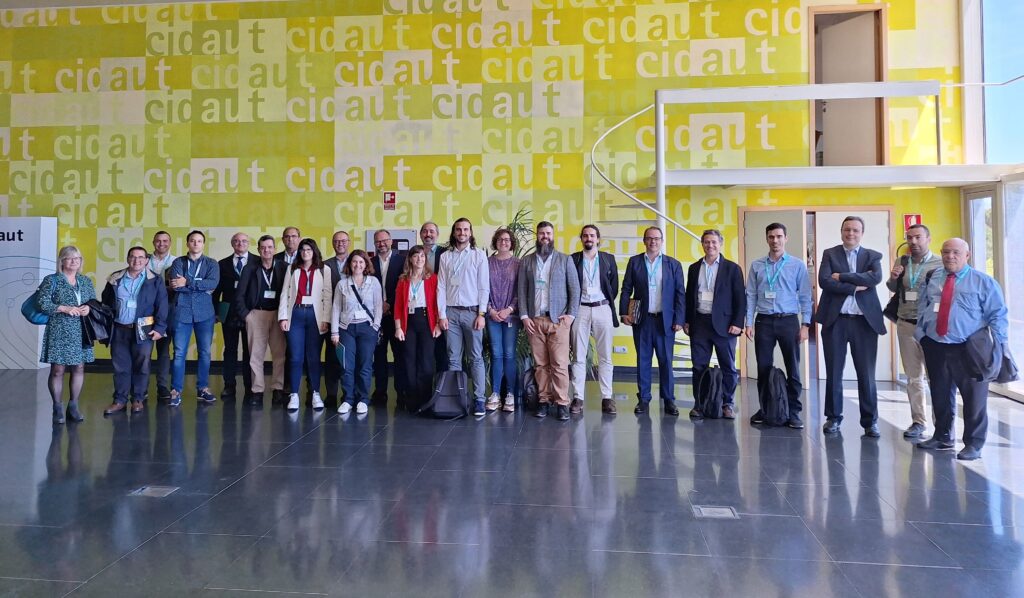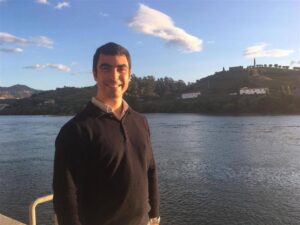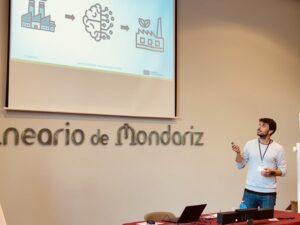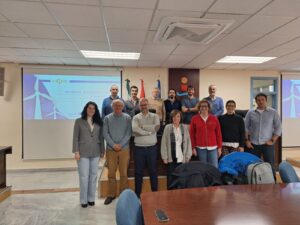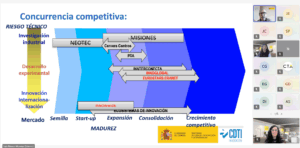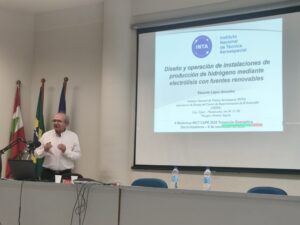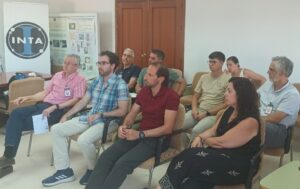‘Ecosystem generation and strategy to boost renewable hydrogen’ was the title of the second cooperation workshop included in the Interreg AIHRE project, organised by CIDAUT last 28 May in Valladolid (Spain). Thirty relevant actors of the renewable hydrogen (H2) value chain in the POCTEP area, shared between Spain and Portugal, attended the event, which was supplementary to the one previously held in Oporto (Portugal).
During the meeting, representatives of companies, organisations and entities working on the generation, transport and use of H2 discussed about the challenges for the implementation of this energy vector which is essential to achieve the zero-emissions goals for 2050, and was established by the European Green Deal.
Councillor for the Environment of Valladolid, Alejandro García Pellitero, inaugurated the meeting, insisting on the opportunity that the generation and the use of renewable hydrogen represents for the economy of the cooperation area.
After his speech, the meeting agenda was developed, which was mainly focused on disseminating the AIHRE project, showing the current situation of hydrogen projects in Castilla y León, Andalucía, Galicia and Portugal and, finally, analysing the current situation of the generation, use and technological development of H2.
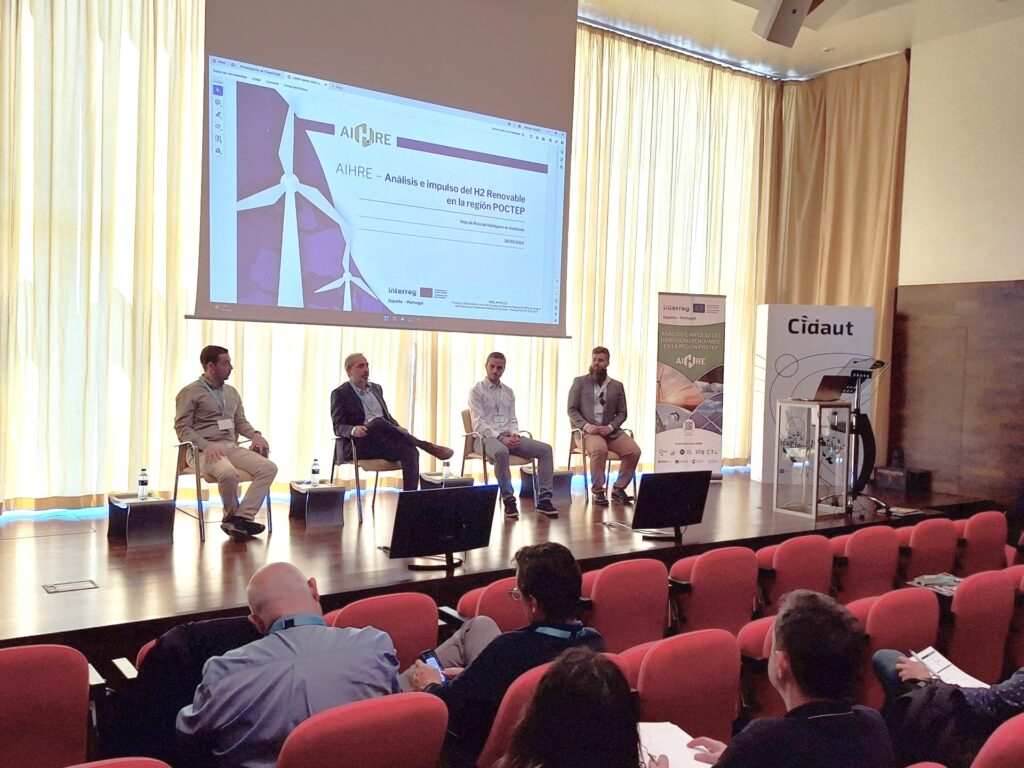
The CIDAUT foundation, responsible for the project coordination and the meeting organisation, assessed the workshop positively. ‘The goal of developing a cooperative workshop to analyse the current barriers for the implementation of renewable hydrogen in the different POCTEP areas has been achieved. We have also compiled different points of view regarding the main challenges to be overcome, technical, economic and administrative challenges. In short, a meeting point has been started through the AIHRE project so that renewable hydrogen companies, entities and professionals can communicate their concerns and proposals to help boost the renewable hydrogen in the POCTEP area’, José Ignacio Domínguez, AIHRE coordinator, states.
The workshop also addressed the difficulties for the implementation of renewable hydrogen, concluding that the main obstacles are the lack of industrial demand and the complexity of project approval. Furthermore, the uncertainty on energy and CO2 price trends, along with the technological immaturity of large-scale facilities, makes it difficult to activate H2 demand.
These conclusions highlight the need to start projects such AIHRE, which seeks to develop key technologies and propose demonstration projects adapted to the characteristics of the POCTEP region.
The workshop meant a significant step towards promoting collaboration and innovation within the renewable hydrogen sector, laying the groundwork for future developments and projects.
Follow us on social media to keep up to date with the latest news on the AIHRE project!
